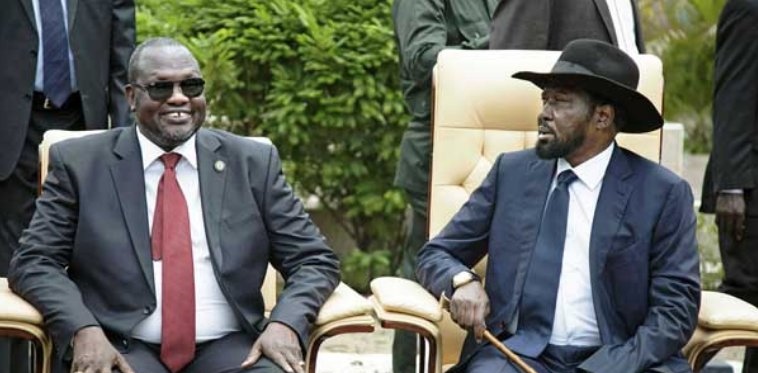No end to war in South Sudan
June 22, 2018 | Expert Insights

The two rival factions at the heart of the civil war in South Sudan have walked away from a peace deal that would have ended the violence.
Background
South Sudan is a landlocked country in East-Central Africa. The country gained its independence from Sudan in 2011, making it the newest country with widespread recognition. Its capital and largest city is Juba. South Sudan has suffered ethnic violence and has been in a civil war since 2013. In December 2013, a political power struggle broke out between President Kiir and his former deputy Riek Machar, as the president accused Machar and ten others of attempting a coup d'état. The two have been at the opposite ends of two warring factions ever since.
Since the start of the conflict, almost 2 million people have been internally displaced, and another 2 million have sought refuge in neighboring countries, with 1 million in Uganda alone. More than 230,000 people are sheltering in six United Nations bases located in towns across the country. Famine was declared in conflict-affected areas in the former Unity state in the first half of this year.
In 2014, one of the worst massacres took place in the nation. An attack in the town of Bentiu, in the north of South Sudan left nearly 400 dead as a result. UN human rights investigators said that after rebels wrested Bentiu from government forces in heavy battles, the gunmen spent two days hunting down those who they believed opposed them.
In addition, the country’s economy has also been devastated. According to the IMF, real income has halved since 2013 and inflation is more than 300% per annum. Some estimates note that nearly six million people in the region could be starving.
It should be noted that there have been multiple attempts in the past to negotiate for peace in the region. However, multiple peace treaties have not rendered fruitful results thus far. In 2016, Machar was briefly made the Vice President of the country, but peace was short lived. Violent fighting ensued, and he fled South Sudan in 2016. Machar has been held under house arrest in South Africa since late 2016.
Analysis
In June 2018, it was confirmed that rebel leader Riek Machar had arrived at Ethiopia to conduct high level talks with current President Salva Kiir. According to officials, the two men were seeking to end to the bloody civil war that has raged on in the region for the past five years.
Despite hope that the bloody war might be coming to an end, it was announced that both parties were unable to reach a consensus. That is because President Salva Kiir rejected working again with Machar after their first face-to-face meeting in two years. Opposition spokesman Lam Paul Gabriel told The Associated Press “there was nothing agreed upon in the talks” but that the face-to-face meeting with South Sudan’s president was useful “because we are able to see violence in Salva’s eyes.”
An opposition statement noted, “For any meaningful dialogue to take place, it should be within the context of a comprehensive political settlement. So that the guns can fall silent and a conducive environment for dialogue established.”
Meanwhile, the East African regional bloc, the Intergovernmental Authority on Development, has led several rounds of failed peace talks. "Business as usual is over. We will sit and wait as of now," Ethiopia's prime minister told the gathering. "The people of South Sudan want peace now and (they) need the leaders to sacrifice their personal ambitions for its sake," the editor of a local newspaper, Wol Deng Atak, told the AP.
In June 2018, the UN Security Council threatened an embargo on arms’ deals to the region unless the two rival leaders reached a resolution.
Assessment
Our assessment is that the talks between the South Sudanese President Salva Kir and the rebel leader Riek Machar will continue to end the civil war which has triggered the biggest displacement in Africa since the Rwandan genocide in 1994. It is one of the largest humanitarian crises in the world and could trigger a far larger refugee crisis if it is not resolved.
Read more - South Sudan’s future








Comments